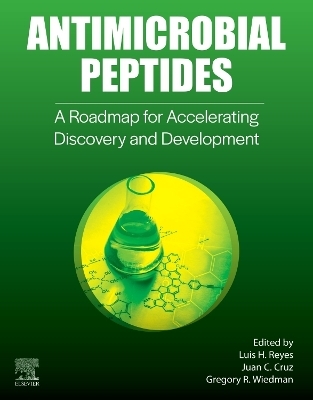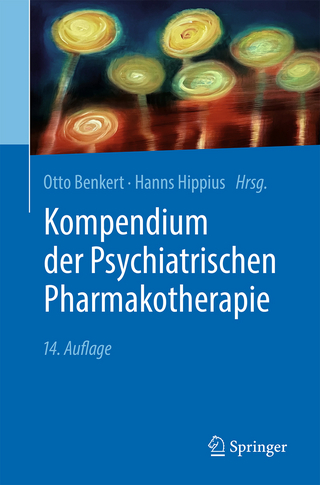
Antimicrobial Peptides
Elsevier - Health Sciences Division (Verlag)
978-0-443-15393-8 (ISBN)
Luis H. Reyes is an Associate Professor at Universidad de Los Andes (Bogotá, Colombia) and Director of the Product and Process Design Group. Luis is a chemical engineer (Universidad Industrial de Santander, Colombia) with a PhD. in Chemical Engineering from Texas A&M University (College Station, TX, USA). His research interest focuses on applying biological engineering to design and develop bioprocesses and bioproducts using various tools borrowed from the natural sciences, such as molecular and synthetic biology, reverse engineering of microorganisms, laboratory adaptive evolution, and microbiology. He teams with an interdisciplinary research group in the biomedical engineering area to develop bionanoconjugated vehicles to transport and deliver biological molecules with therapeutic potential, including gene and enzyme replacement therapies. He also works in the discovery and production of peptides with applications in the medical, food, and petrochemical industries. In food engineering, Luis studies the sensory design of beer and the protein replacement of dairy products. Juan Carlos Cruz obtained his undergraduate degree in Chemical Engineering from the National University of Colombia (2002) and later his Ph.D. in Chemical Engineering from Kansas State University (KSU) (2010) for his work on a new platform for enzyme immobilization to address biocatalysis challenges in non-aqueous media. Cruz has experience as Head of New Product Development in a chemical company, where he developed several nanotechnological applications to improve critical attributes of plastics according to the requirements and standards of new market niches. In 2016, he joined the Department of Biomedical Engineering at Universidad de Los Andes (Bogotá, Colombia). Cruz has more than fifteen years of working in the fields of industrial and medical biotechnology and, in particular, in the development of nanobiocatalysts, the fundamental understanding of protein-protein, protein-surface, and protein-lipid interactions, the development of new nanoparticulate vehicles for the release and guidance of pharmacological molecules and the search for unique peptides with membrane activity. Gregory R. Wiedman works at Seton Hall University in NJ, USA.
Introduction. Antimicrobial peptides: from the bench to the bedside Section 1. Computational approaches 1. Bioinformatic methods for the design of antimicrobial peptides 2. Fundamentals of molecular dynamics for antimicrobial peptides' discovery 3. Artificial intelligence for the discovery of antimicrobial peptides 4. Computational tools for handling large databases of biological relevance 5. Statistical analysis and data interpretation Section 2. Experimental approaches 6. Chemical synthesis of peptides: conventional and novel routes 7. Physicochemical and biochemical characterization 8. Non-rational approaches based on microbial surface display 9. Classical and emerging approximations for the screening of peptide libraries 10. Scaling-up of biological production processes 11. Downstream processing 12. Physicochemical and biochemical characterization Section 3. Translational studies 13. Biological characterization: in vitro and in vivo studies 14. Pre-clinical and clinical studies 15. Formulation and product design 16. Packaging, long-term stability, and usability 17. Quality control and assurance
| Erscheinungsdatum | 07.12.2024 |
|---|---|
| Verlagsort | Philadelphia |
| Sprache | englisch |
| Maße | 216 x 276 mm |
| Gewicht | 450 g |
| Themenwelt | Medizin / Pharmazie ► Medizinische Fachgebiete ► Pharmakologie / Pharmakotherapie |
| Naturwissenschaften ► Biologie ► Biochemie | |
| Naturwissenschaften ► Chemie ► Organische Chemie | |
| ISBN-10 | 0-443-15393-0 / 0443153930 |
| ISBN-13 | 978-0-443-15393-8 / 9780443153938 |
| Zustand | Neuware |
| Informationen gemäß Produktsicherheitsverordnung (GPSR) | |
| Haben Sie eine Frage zum Produkt? |
aus dem Bereich


